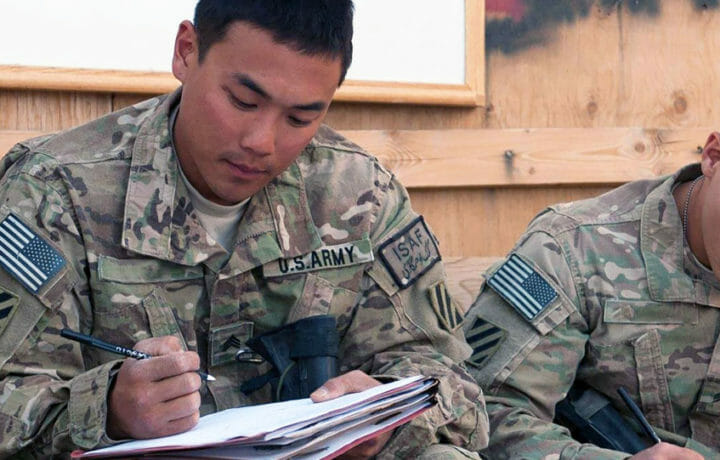The military offers some incredible benefits to service members, so why do many leave the service for contracting jobs? “Anthony” (pseudonym), an active duty Army officer for 10 years, explains why he moved to the DC area to work for a contractor.
Why did you decide to enter the private sector?
“I had family and professional reasons that made me want to leave active duty. For one thing, I got accepted to a great graduate program, and I felt like I wanted to apply my skills to the private sector.”
How long did it take you to find a job?
“It took me a lot longer than I thought it would; about 8 months before getting my first job offer. That’s a bit longer than the average, from what I’ve heard. I was at school when I left active duty and wasn’t looking very hard.”
Did you use military resources or connections to find a job?
“That was the reason I found my current job. I would highly recommend anyone in the military to reach out on websites like ClearanceJobs. I messaged my future boss and said I just moved to this area and maybe we could chat sometime. He saw I was a vet looking for a job and he was open to talking with me.”
Why did you choose the DC area?
“Having a clearance goes a lot further here than in other areas. [Having a] clearance is a marketable asset for a lot of DC area companies. I certainly didn’t come here for the weather.”
How does your military experience help you in your current position?
“The military taught me organizational skills, not only personal organization and setting priorities, but skills relating to company organization. Other soft skills such as leadership, communication, and being able to work and interact with a slew of different types of people have come in handy. I don’t find the hard skills I learned in the military useful in the civilian sector.
What is an advantage of working in the private sector over the military?
“There’s a lot more freedom in where you work, with the current low unemployment rate, a lot of companies are hiring and you have the flexibility to look at different jobs. The money is also way better in the private sector.
What do you miss about the military?
“The camaraderie. Hands down that’s what I miss more than anything. It’s what drew me into the Reserves. There are some great benefits to being in the military that you don’t have in the private sector. Most of all, it’s the friendships and the required fun.”
Why is that?
“I think the military instills a sense of oneness, a sense of common purpose. It’s everyone looking out for each other; everyone has each other’s best interest at heart. That’s something you don’t find as much in the private sector.”
How do you combine Reserve duty with your civilian career?
“My supervisor is very accommodating of my Reserve commitments. I never have to ask for a day off or show him my orders. I know there are a lot of companies in the DC area made up of veterans who understand the requirements of Reserve duty, so for me the balance is very easy. I know there are a lot of people who struggle with it. As a company commander, I get a lot of emails from people who work in companies that need their employees to work, and I try to be as accommodating as I can to someone’s civilian career because at the end of the day those are the guys who are paying the bills for my soldiers.
What advice would you give to people transitioning from the military into a civilian career?
“I would suggest that people stay in the National Guard or Reserves. You will probably miss the military when you get out, and the private sector is not always very reliable. Sometimes it takes longer to find jobs than you would expect, so my number one advice is to stay tied to the military in some way. Reserve duty is not very demanding, so you can balance your military career with your private career.”



